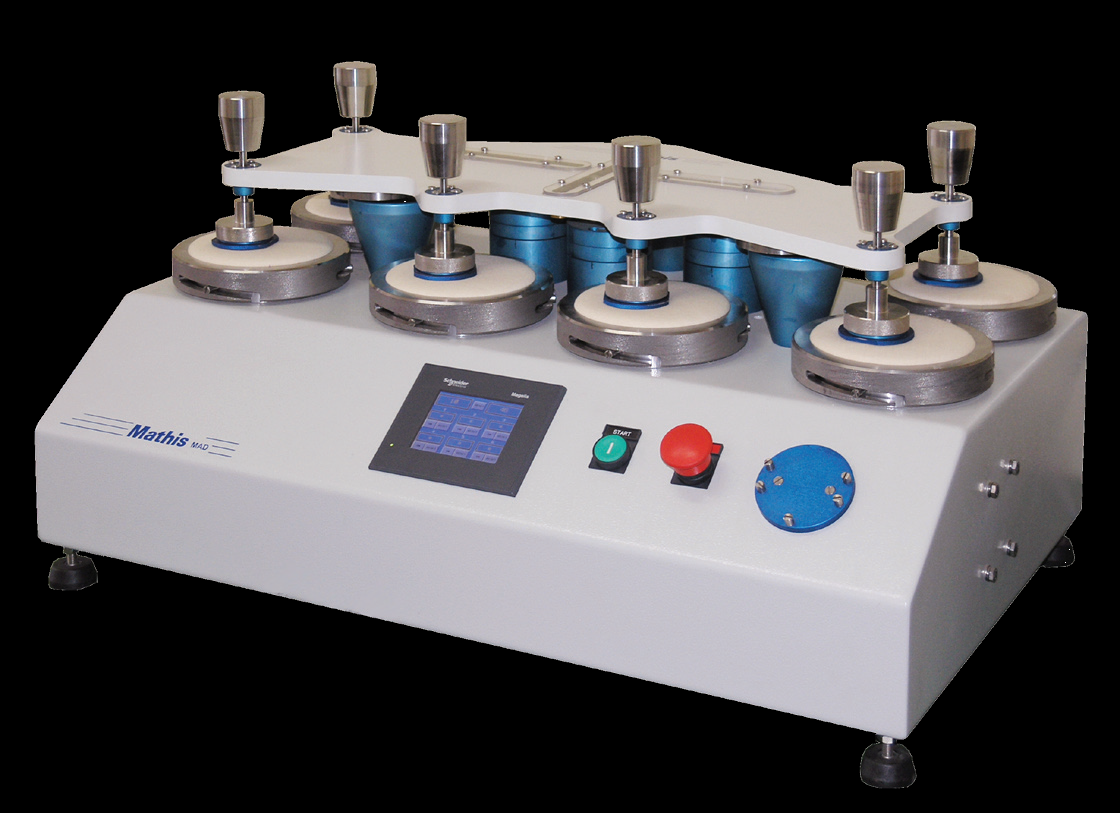Protective fabric pilling resistance for military uniforms
The abrasion and pilling resistance of protective fabrics is critical in ensuring that military uniforms maintain their functional integrity during prolonged use. Pilling can compromise the appearance, performance, and even the safety of the garment. In this service, we focus on providing comprehensive testing to evaluate how well a fabric resists pilling under conditions relevant to its intended use as part of military uniform systems.
Our testing protocol is designed specifically for protective fabrics used in military uniforms. This includes woven materials that undergo rigorous abrasion and friction tests using standardized methods such as ISO 12947-2, which simulates real-world wear and tear conditions. The goal is to assess the fabric's resistance to pilling over time under various environmental stresses.
The testing process involves multiple stages. Initially, we prepare a consistent sample of the fabric according to industry standards. Once prepared, these samples are subjected to controlled abrasion cycles using an instrumented machine that simulates the rubbing and friction experienced during typical use. After each cycle, the fabric is visually inspected for pilling formation.
For more accurate results, we also conduct before-and-after measurements of pilling using high-resolution imaging techniques. This allows us to quantify any changes in the appearance of the fabric surface precisely. We then compare these findings against established acceptance criteria set forth by international standards like ISO 12947-2.
Understanding customer needs is crucial when providing this service, so we work closely with our clients throughout every step of the process—from initial consultation to final report generation. By tailoring our approach to meet specific project requirements, we ensure that each test accurately reflects real-world conditions faced by end-users in various environments.
This expertise ensures that manufacturers can make informed decisions about material selection and processing methods early in their product development cycle, helping them achieve optimal performance while minimizing potential issues later on. The ability to predict how a fabric will behave under different stress levels is invaluable for ensuring long-lasting protection against environmental factors such as dirt accumulation or chemical exposure.
By offering this specialized service, we help our customers stay ahead of regulatory changes and maintain compliance with industry standards related to protective clothing and equipment. Our commitment to innovation means that we regularly update our methodologies based on feedback from both academia and industry leaders within the textile sector.
Our testing capabilities extend beyond just abrasion resistance; they cover a wide range of performance characteristics essential for military uniforms. From chemical resistance to flame retardancy, our experts can provide tailored solutions addressing all aspects of fabric durability required by modern warfare environments.
Why Choose This Test
Choosing the right test ensures that you receive accurate and reliable results which are crucial for meeting quality standards and maintaining customer satisfaction. When selecting a laboratory provider, it's important to consider factors such as expertise, experience, and reputation within your industry. Our team of highly qualified professionals has extensive knowledge in textile testing specifically tailored towards protective fabrics used in military uniforms.
- We use state-of-the-art equipment that adheres strictly to international standards ensuring consistent and repeatable results.
- Our experienced technicians understand both the theoretical aspects as well as practical applications of each test procedure, allowing us to provide insightful recommendations based on our findings.
- Prompt communication allows clients to stay informed about progress at every stage of the testing process so they can address any issues promptly if necessary.
- We ensure confidentiality by handling sensitive data securely both during transit and storage ensuring compliance with applicable regulations.
These advantages make us a preferred choice for quality managers, compliance officers, R&D engineers, and procurement professionals who value precision and dependability in their testing services. By partnering with us, you gain access to cutting-edge technology combined with unparalleled expertise—guaranteeing that your products meet the highest levels of performance expected by end-users.
Customer Impact and Satisfaction
The impact of choosing a reliable laboratory for textile testing is significant in terms of customer satisfaction. Satisfied customers are more likely to recommend our services, leading to increased business opportunities and long-term partnerships. Here’s how we contribute positively towards achieving this goal:
- Enhanced Reputation: By consistently delivering high-quality results, we help establish a strong reputation for ourselves among industry stakeholders.
- Informed Decision-Making: Our detailed reports provide valuable insights that assist customers in making informed decisions regarding fabric selection and processing methods.
- Streamlined Processes: Through efficient communication channels, we ensure smooth workflows between different departments involved in the product development process.
- Regulatory Compliance: Ensuring adherence to relevant regulations helps protect our clients from legal challenges associated with non-compliance.
Our focus on meeting customer expectations translates directly into increased satisfaction levels, fostering trust and loyalty. This is further strengthened by continuous improvement initiatives aimed at enhancing service delivery across all dimensions of operation.
International Acceptance and Recognition
- American Society for Testing and Materials (ASTM): ASTM D3510 covers pilling resistance using a rotary abraser, aligning closely with ISO 12947-2.
- Iso International Organization for Standardization: As mentioned earlier, ISO 12947-2 provides the methodology for determining pilling resistance through abrasion testing. It is widely accepted and used globally.
- European Committee for Standardization (CEN): CEN/TS 13865 specifies supplementary criteria for assessing pilling on fabrics, complementing ISO standards.
- International Electrotechnical Commission: IEC 60947-2 pertains to the electrical characteristics of switchgear and control equipment, but its principles are applied similarly in other sectors including textiles.





